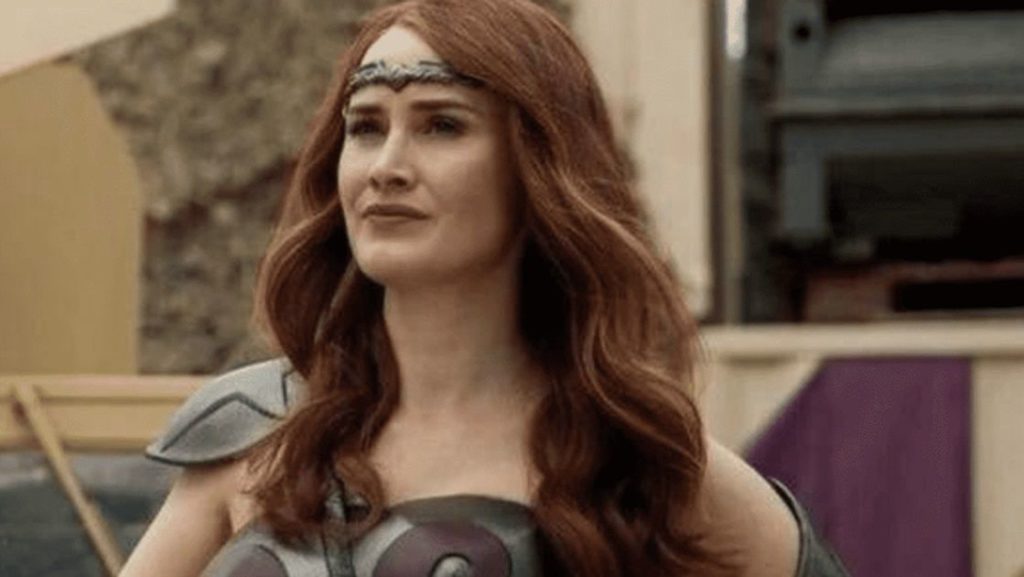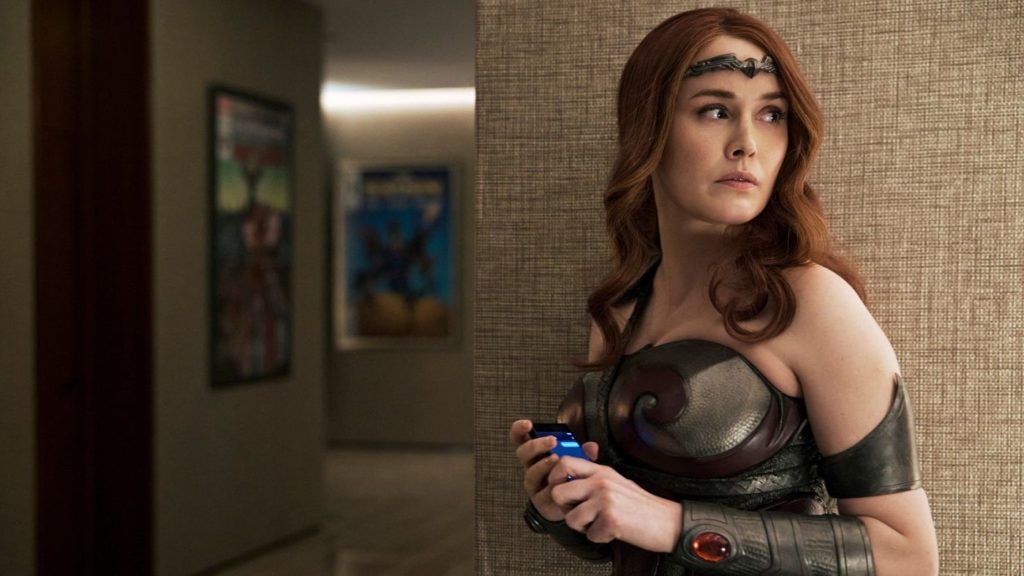One thing became clear when The Boys’ third season drew to an end. The story of Queen Maeve (Dominique McElligott) was about to come full circle, or as near to it as she would ever get. She lost her powers as she set off with Elena (Nicola Correia-Damude) in the setting sun following a conflict with Homelander (Anthony Starr) that left her with one eye removed and the public believing she had killed Soldier Boy (Jensen Ackles). But Maeve now had a life independent of Homelander, which was what she had always desired. The audience applauded as Starlight (Erin Moriarty) bid her farewell as The Boys saw one of The Seven’s founding members depart the show for a spell.
However, Maeve’s departure was expected. Maeve’s storyline throughout the course of three seasons was one of realising her independence and severing ties with the organisation that not only had created her but also had provided her with a great deal of the traumas that had shaped her. She was frequently ignored and never given the credit she deserved due to an uneven arc. Maeve spent the most of what would have been her final appearance on the programme in a jail cell, unable to escape until Starlight entered and rescued the day.

The Boys emphasised the similarities between the two, but Maeve’s time working for Vought and Homelander had damaged her. One of the better instances is the season one plane scenario. Despite her best efforts to help others, Maeve ultimately chooses to follow Homelander and drown herself in alcohol to forget. The primary distinction between Starlight and Queen Maeve has always been this. Maeve was so exhausted that she just resigned herself to drinking her issues away, while Starlight never gave up and was always attempting to find a way to uphold her principles.
But the programme had a serious defect. Maeve never received as much attention or as many plots as the other characters, despite the fact that she was a series regular. Her stories largely focused on Homelander and Starlight, and she felt more like a supporting character than a primary one. While Season 2 attempted to change that, it was immediately dropped in Season 3 and she was once more consigned to the background.

The second season of the sitcom was when Maeve’s potential was completely realised. Although her plot was still heavily influenced by her animosity towards Homelander, it was also her own. Her character development had begun, and it appeared that the show’s progression would continue in the upcoming season. Maeve ultimately experienced some measure of happiness with Elena for the majority of the second season. Maeve eventually started to understand her own tale, albeit it swiftly fell apart when her sexuality was revealed and when Vought and Homelander in general began to manipulate her.
The Boys were able to access something they couldn’t before by telling her this tale. The first season of the show had not addressed Maeve’s sexuality. She was revealed to be bisexual, and Elena was the only person with whom she had a genuine relationship. Maeve’s story, however, otherwise focused on her efforts to escape Homelander’s control. While the second season continued to employ that concept, by forcing her to come out, the programme was able to make a remark on how corporations exploit sexuality to win the public’s favour. It offered a lot of development and was complex and multi-layered, but after Season 2, Maeve was forgotten about by the programme.

The biggest issue is there, in that respect. The show never understood what to do with Queen Maeve, relegating her to a mere supporting role who only ever appeared to further other tales rather than her own, despite the fact that her story was full of great possibilities. When given the chance to shine, Maeve showed herself to be a complex and compelling character, but those opportunities were so few and far between by the time she left the show. She hardly ever received the screen time she deserved and much of her development was done off-screen.
It’s unfortunate because The Boys has shown they are better than most shows at character development. However, they naturally had no idea how to approach Queen Maeve and her tale.

